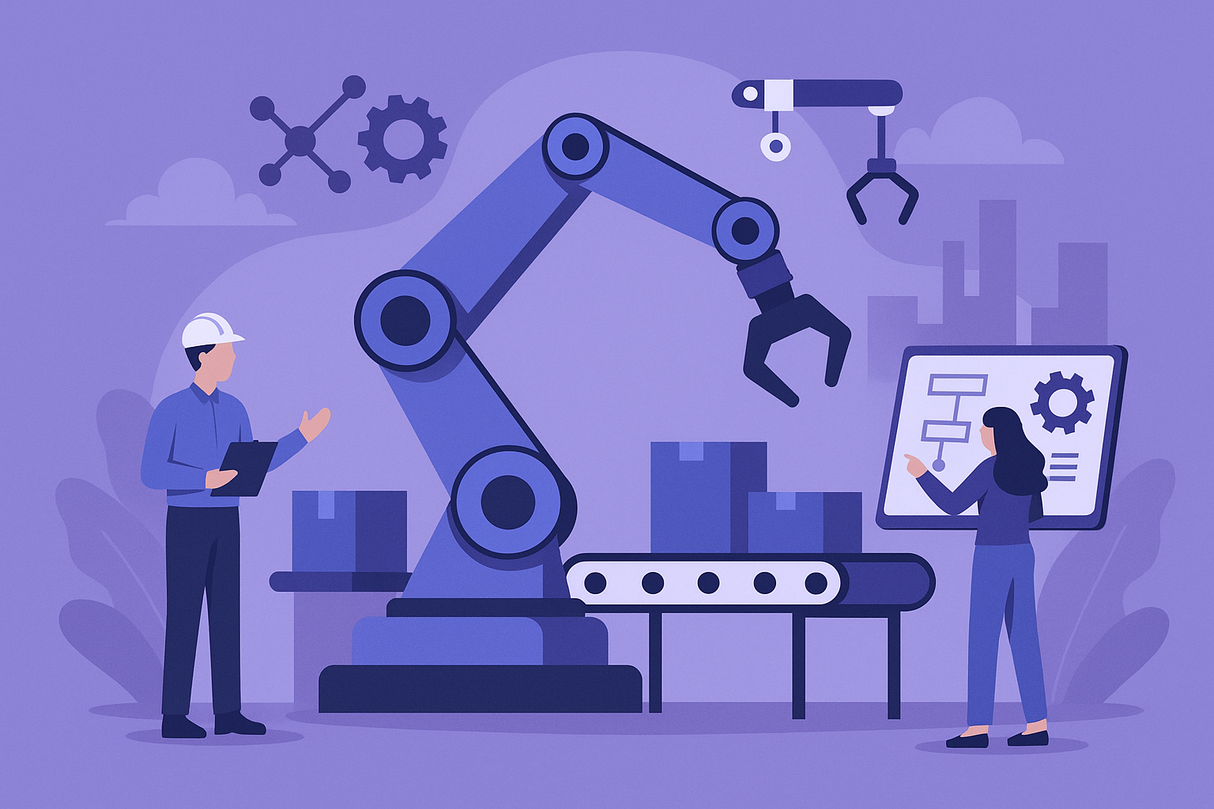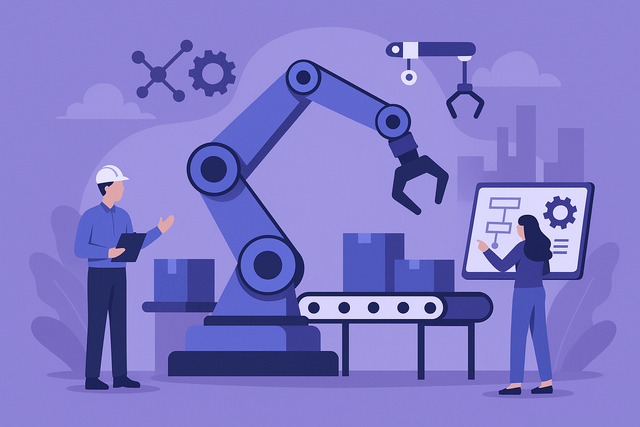Fundamentals of Industrial Robotics and Automation
Kafka Architecture Explained: Explore the building blocks of Kafka, including topics, partitions, brokers, and consumers.
Fundamentals of Industrial Robotics and Automation is backordered and will ship as soon as it is back in stock.
✔ Earn money reselling this course
✔ 100% PLR License
✔ Downloadable Content
✔ Modify to your needs
Fundamentals of Industrial Robotics and Automation
Discover the significance of Robotics and automation in the manufacturing and logistics industries.
(Beginner) This course is designed for aspiring robotics professionals who need a well-rounded introduction to industrial robotics and automation.
An industrial robot is one that has been developed to automate intensive production tasks such as those required by a constantly moving assembly line.
In the course we cover the fundamental concepts and use cases for industrial robotics and automation.
This course has been designed to provide a basic introduction to the world of industrial robotics and important concepts of how robotics provides immense value to companies.
This course also provides anyone new to technology with an overview to help them understand what a potential robotics engineer role could entail.
Expected Learning Outcomes
At the end of the course, the learners will be able to be acquainted with the following.
ü Understand the evolution, importance, and types of robotics.
ü Apply knowledge of industrial robots practically.
ü Proficiency in automation technologies for optimization.
ü Awareness of safety, future trends, and industry applications.
Course Lessons
Module One: An Overview of Industrial Robotics and Automation
ü Evolution of Industrial Robotics
ü Importance of Automation in The Industrial Sector
ü Types of Industrial Automation
ü Suitable Industries for Automation with Robots
Module Two: Industrial Robots
ü Basics of Industrial Robots
ü Advantages of Industrial Robots
ü Industrial Robot Applications
ü Types of Industrial Robots
ü Performance Specifications of Industrial Robots
Module Three: Industrial Automation Technologies
ü Industrial Automation Tools
ü On-Premise Vs. Cloud Systems for Industrial Automation
ü Advantages & Disadvantages of On-Premise Automation Systems
ü Advantages & Disadvantages of Cloud Automation Systems
Module Four: Robot Programming and Integration
ü Robot Programming Basics
ü Programming Languages for Industrial Robots
ü Integration Of Robots into Existing Workflows
Module Five: Safety Standards and Regulations
ü Industrial Robotic Safety Risk Assessment
ü Safety Advantages Industrial Robotics Offer
ü Safety Standards Used in Robotics
ü Hazards When Working with Robots
Module Six: Future Trends & Case Studies
ü The Role of Robotics in The Fourth Industrial Revolution
ü Future Trends in Industrial Robotics and Automation
ü Case Studies in Various Industries
ü Course Summary
ü Resources and Course Closeout
Why you should take this course.
✓ You want to ensure you understand what Industrial Robotics and Automation s is really about.
✓ You want to understand how to get started in a career with Industrial Robotics and Automation
✓You want to understand the types of robotics used in manufacturing plants and logistics hubs.
✓ Get enabled to take more advanced robotics courses.
✓ You’re interested in use cases for industrial robotics.
Requirements
No requirements.
Last Updated: June 06, 2024
About the instructor
Joseph Holbrook
-
Private Label Right License (PLR) for the course: Fundamentals of Industrial Robotics and Automation
With a PLR license you can modify and change a course to your needs. Next to this, you can keep 100% of the income if you sell the course as a part of your own products. This is what you can do:
[YES] Product may be sold separately
[YES] Product may be bundled with other products
[YES] Product can be a bonus for another product
[YES] Can be added to paid membership sites
[YES] Can add bonuses to the Product for sale
[YES] Can be sold as a physical product
[YES] Can be sold as a digital product
[YES] You may put your own name on the sales letter
[YES] You may rename the product
[YES] You may edit the sales material
[YES] You may edit the content of the product
[YES] You may use the source code/material to create new products
[YES] You may use the name(s) of the author/creator/seller of the Product
[YES] Can translate the course into other languages
[YES] Can be used to build a list[NO] Can offer Resale Rights
[NO] Can be used for YouTube or other free video sites
[NO] Can be added to free membership sites
[NO] Can be given away for free
[NO] Can be used or sold on Uthena
[NO] Can be used or sold on Udemy, Skillshare, or other course platforms you don't own
[NO] Can offer Master Resale Rights
[NO] Can offer Private Label Rights



